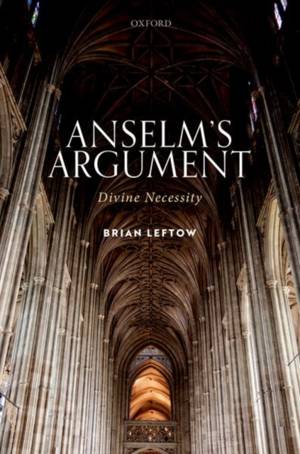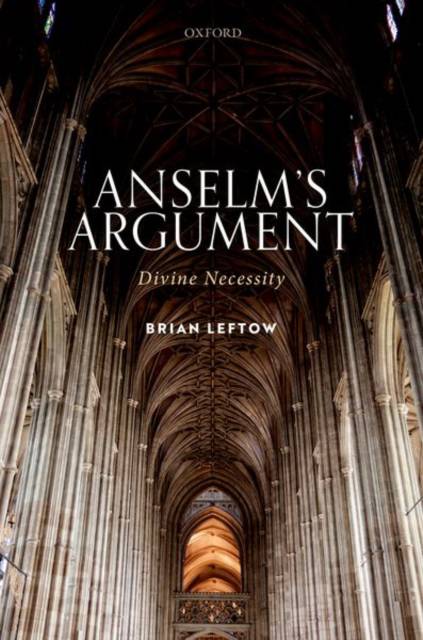
Bedankt voor het vertrouwen het afgelopen jaar! Om jou te bedanken bieden we GRATIS verzending aan op alles gedurende de hele maand januari.
- Afhalen na 1 uur in een winkel met voorraad
- Gratis thuislevering in België
- Ruim aanbod met 7 miljoen producten
Bedankt voor het vertrouwen het afgelopen jaar! Om jou te bedanken bieden we GRATIS verzending aan op alles gedurende de hele maand januari.
- Afhalen na 1 uur in een winkel met voorraad
- Gratis thuislevering in België
- Ruim aanbod met 7 miljoen producten
Zoeken
Omschrijving
Anselm of Canterbury gave the first modal "ontological" argument for God's existence. Yet, despite its distinct originality, philosophers have mostly avoided the question of what modal concepts the argument uses, and whether Anselm's metaphysics entitles him to use them. Here, Brian Leftow sets out Anselm's modal metaphysics. He argues that Anselm has an "absolute", "broadly logical", or "metaphysical" modal concept, and that his metaphysics provides acceptable truth makers for claims in this modality. He shows that his modal argument is committed (in effect) to the Brouwer system of modal logic, and defends the claim that Brouwer is part of the logic of "absolute" or "metaphysical" modality. He also defends Anselm's premise that God would exist with absolute necessity against all extant objections, providing new arguments in support of it and ultimately defending all but one premise of Anselm's best argument for God's existence.
Specificaties
Betrokkenen
- Auteur(s):
- Uitgeverij:
Inhoud
- Aantal bladzijden:
- 332
- Taal:
- Engels
Eigenschappen
- Productcode (EAN):
- 9780192896926
- Verschijningsdatum:
- 30/06/2022
- Uitvoering:
- Hardcover
- Formaat:
- Genaaid
- Afmetingen:
- 163 mm x 235 mm
- Gewicht:
- 671 g

Alleen bij Standaard Boekhandel
+ 312 punten op je klantenkaart van Standaard Boekhandel
Beoordelingen
We publiceren alleen reviews die voldoen aan de voorwaarden voor reviews. Bekijk onze voorwaarden voor reviews.












